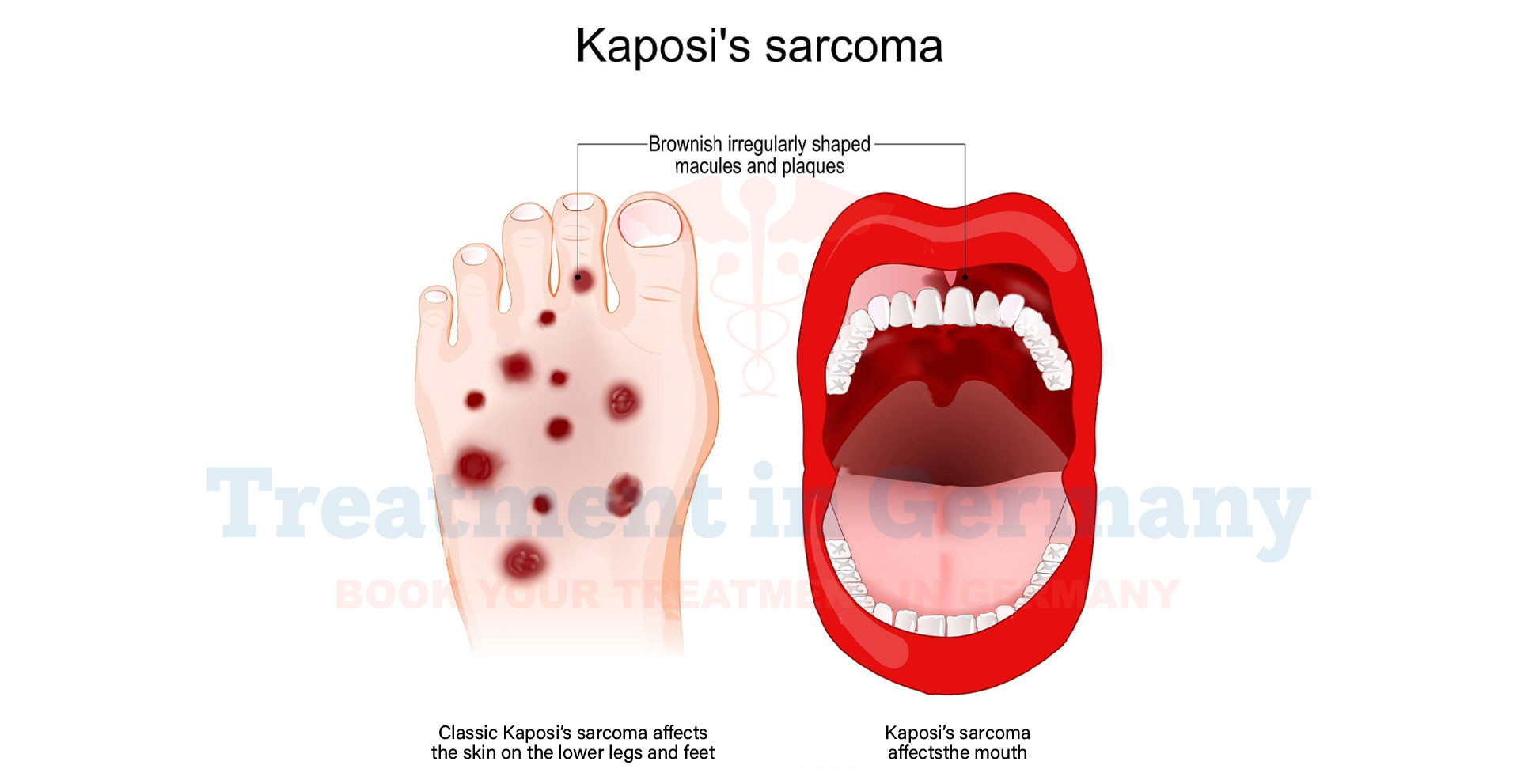What is Kaposi's Sarcoma?
Kaposi's Sarcoma (KS) is a rare type of cancer that primarily affects the skin, but can also involve other organs such as the mouth, lymph nodes, and internal organs.
It is caused by a type of herpesvirus called Kaposi's sarcoma-associated herpesvirus (KSHV), also known as human herpesvirus 8 (HHV-8). KS tumors typically appear as lesions on the skin, varying in color from pink to dark purple.
Side Effects of Kaposi's Sarcoma
The side effects of Kaposi's Sarcoma can vary depending on the location and extent of the tumors. Common side effects include:
- Skin Lesions: Raised patches or nodules on the skin, which may be discolored (pink, red, purple).
- Pain or Discomfort: Tumors can sometimes cause pain or discomfort, especially if they are large or located in sensitive areas.
- Internal Organ Involvement: In advanced cases, KS can affect internal organs such as the lungs, gastrointestinal tract, or liver, leading to symptoms related to organ dysfunction.
How is Kaposi's Sarcoma Diagnosed?
Diagnosis of Kaposi's Sarcoma typically involves the following steps:
- Physical Examination: A healthcare provider will examine any skin lesions or other suspicious areas.
- Biopsy: A small sample of tissue from a lesion or affected area is taken for examination under a microscope. This confirms the presence of KS and helps determine its subtype.
- Imaging Studies: Depending on the extent of the disease and suspected involvement of internal organs, imaging tests such as CT scans or MRIs may be performed to assess the spread of the disease.
- Blood Tests: Blood tests may be done to detect antibodies to KSHV/HHV-8 or to assess the function of organs that may be affected.
Potential Treatment of Kaposi's Sarcoma
Treatment options for Kaposi's Sarcoma depend on several factors including the subtype of KS, the extent of the disease, and the overall health of the patient. Some common treatments include:
- Antiretroviral Therapy (ART): For individuals with HIV/AIDS who also have KS, controlling HIV with ART often helps manage KS as well.
- Local Therapies: This includes treatments such as radiation therapy or topical treatments directly applied to skin lesions.
- Systemic Therapy: Chemotherapy, immunotherapy, or targeted therapy may be used for more widespread or aggressive KS that involves internal organs.
- Supportive Care: Managing symptoms and improving quality of life through supportive care measures is an integral part of treatment.
👉 Contact us for further information and receive a complimentary consultation.


.webp)
 (1).webp)

.webp)
 (1).webp)


.webp)
 (1).webp)

.webp)
 (1).webp)
